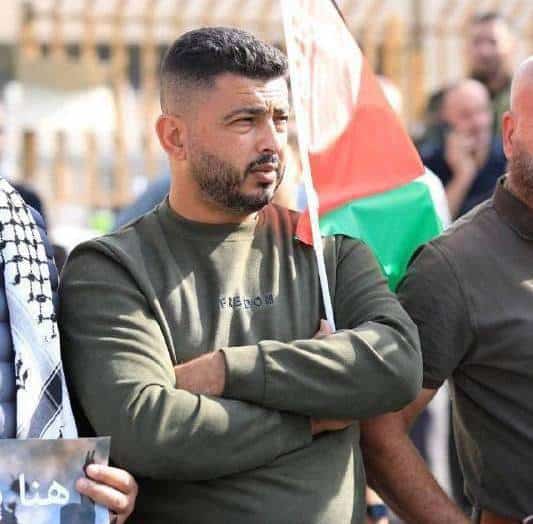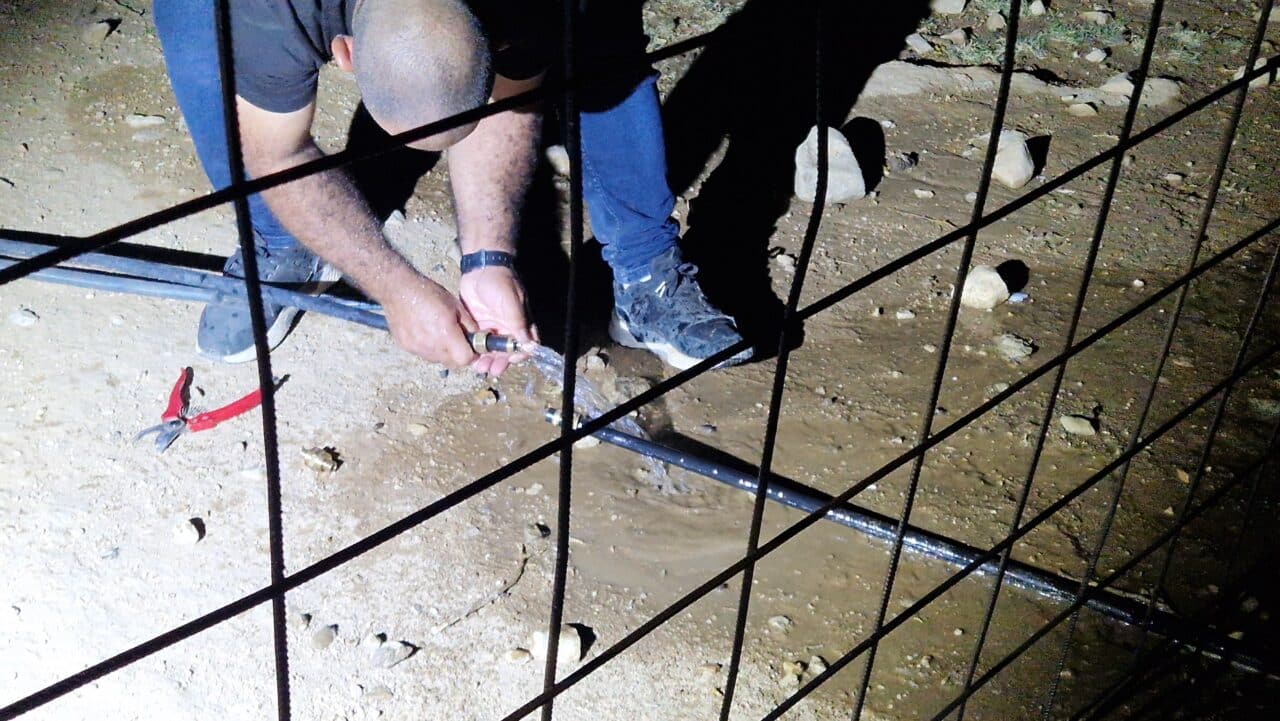Tag: Jordan Valley
-
UPDATED: Palestinian Activist Ayman Ghrayeb Abused in Custody and Held in Administrative Detention
FOR IMMEDIATE RELEASESunday, November 23, 2025 Update 3/12/2025: https://www.frontlinedefenders.org/en/case/human-rights-defender-ayman-ghraieb-held-administrative-detention Ayman Ghrayeb, a prominent Palestinian grassroots activist based in the Jordan Valley, was arrested by Israeli forces on Monday, November 17, and was forcibly disappeared for two days before his lawyers were given any information about his whereabouts. During this time, Ghrayeb had been covertly held…
-
Palestinian Activist Ayman Ghrayeb Hospitalized; Facing Administrative Detention
FOR IMMEDIATE RELEASEThursday, November 20, 2025 Ayman Ghrayeb, a prominent Palestinian grassroots activist based in the Jordan Valley, was arrested by Israeli forces on Monday, November 17, and was forcibly disappeared for two days before his lawyers were given any information about his whereabouts. Throughout the first two days of his arrest, both the Israeli…
-
Fasayil al Wusta: Forced Displacement Continues in the Jordan Valley
Palestinian households in the village of Fasayil al Wusta, located in the Jordan Valley north of Jericho, have been facing increasing harassment and attacks over the past month. As a result, five families decided to leave the area on Thursday, November 6. Only one family remains, still resisting despite displacement efforts. Fasayil al Wusta lies…


